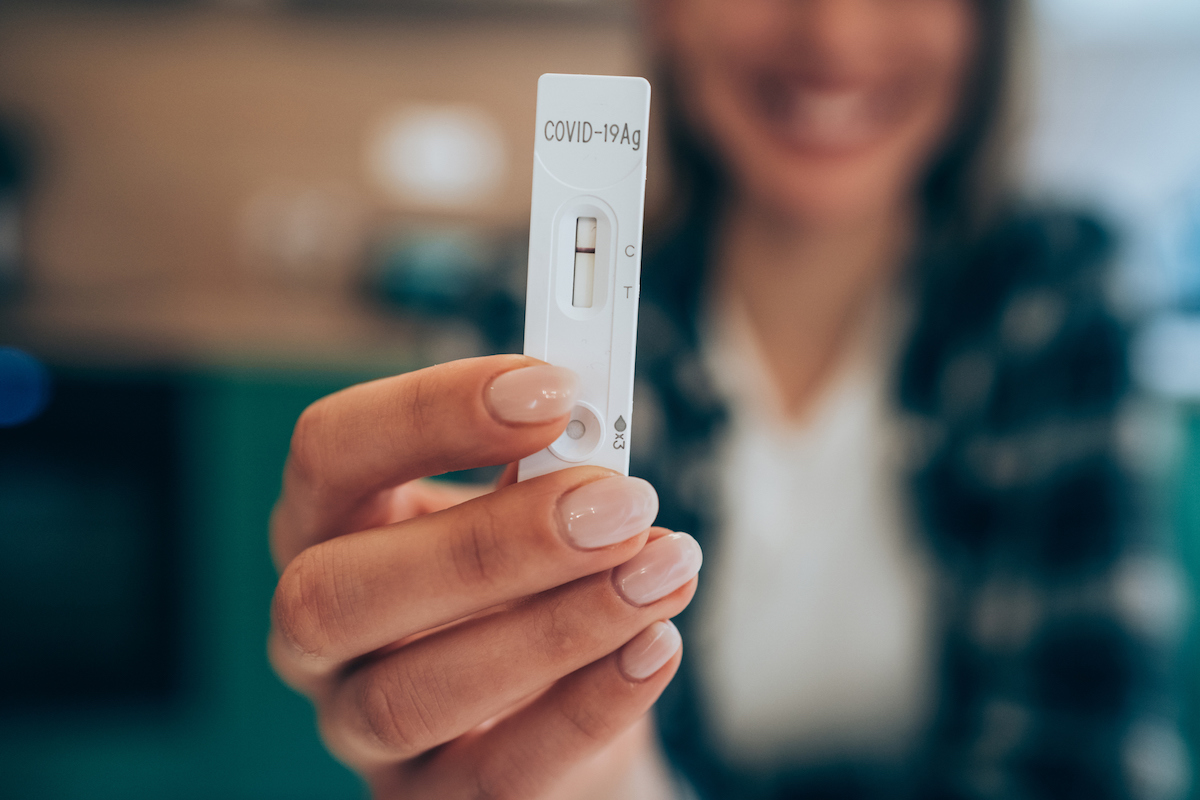<< Back
Why an At-Home COVID Test Should Be on Your Pre-Holiday Wish List

October 28, 2021
An at-home COVID-19 test, available over the counter, will be a must-have in medicine cabinets this winter when flu season meets the coronavirus as we approach the holidays. Yes, even for the fully vaccinated.
With a nationwide shortage, and escalating costs, the National Institutes of Health this week pledged $70 million from the American Rescue Plan to accelerate the review of new at-home tests. The Food and Drug Administration will also work with NIH to make it easier for manufacturers to develop affordable in-home tests.
Why the shortage? Employers need them for workers returning to the office. And manufacturers backed off production this spring when cases dropped — Abbott even destroyed several batches of its rapid tests this summer. Other potential manufacturers were discouraged by the FDA’s strict authorization process. Even with the federal push, it could take months for supply to meet the demand.
The fully vaccinated can still get infected with the virus and transmit it to others who are either unvaccinated or at higher risk.
Two types of diagnostic tests are available for home use:
Antigen rapid test: The most common at-home test detects certain proteins in SARS-CoV-2, the virus that causes COVID-19. (For a list of antigen tests available under an FDA emergency use authorization, click here.) These tests are about 80 percent sensitive, so a false positive is not uncommon. And if you have symptoms, a negative doesn’t necessarily mean you’re COVID-free.
“The antigen tests rely on the timing, depends on the symptoms, so we shouldn’t rely on a negative test,” says Dr. Ulysses Wu, Hartford HealthCare’s System Director of Infection Disease and Chief Epidemiologist, “if we have a high suspicion (the patient) has COVID.”
Among the most accurate tests is one of the newest: The Flowflex COVID-19 Antigen Home Test, which the FDA authorized for emergency use Oct. 4, provided in a clinical study a correct positive result 93 percent of the time and a correct negative result 100 percent of the time.
PCR: A polymerase chain reaction, or PCR, test is the most reliable at about 98 percent sensitive. It’s used at Hartford HealthCare test locations across the state. This method, also called a molecular test, detects the virus’ genetic material.
An antibody test checks for antibodies produced by your immune system as a defense against the virus. This type of test does not diagnose an active infection. Antibodies can take weeks to develop after an infection. A test requires blood from a finger stick or drawn at our doctor’s office of medical lab.
A fever, cough, body aches, runny nose or nausea creates an immediate dilemma — flu or COVID-19? — that will increase testing demand this winter. The federal government has already spent $3 billion for rapid COVID-19 tests, with $1 billion designated earlier this month to buy tests that could increase the number available nationwide to 200 million a month by December.
Lab-based tests are available in your community, whether at the drive-up site at Hartford HealthCare’s System Support Office in Newington or Hartford HealthCare-GoHealth Urgent Care locations.
“Newington was set up particularly to care for those with symptoms,” says Dr. James Cardon, Hartford HealthCare’s Chief Clinical Integration Officer.
Testing is also available at more than 100 Quest Diagnostics in the state. To find a testing location near you, click here.